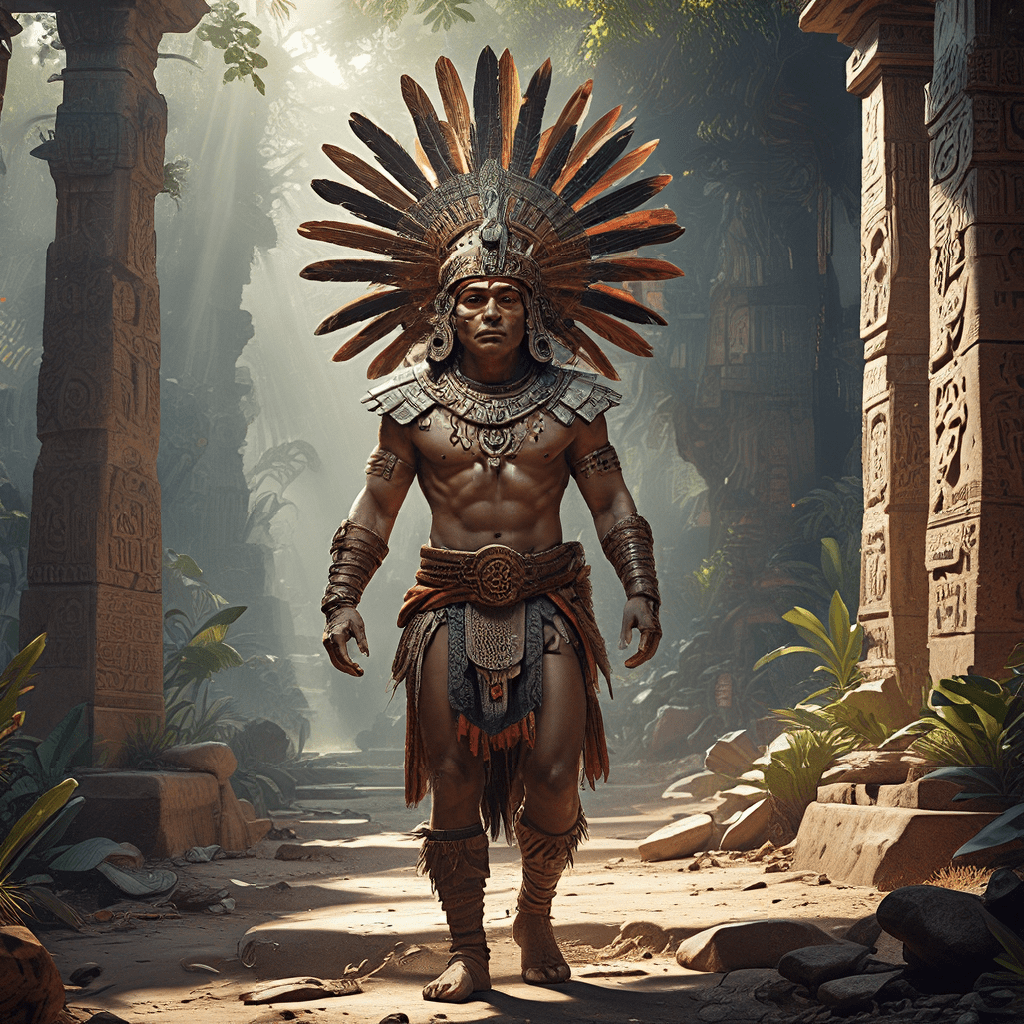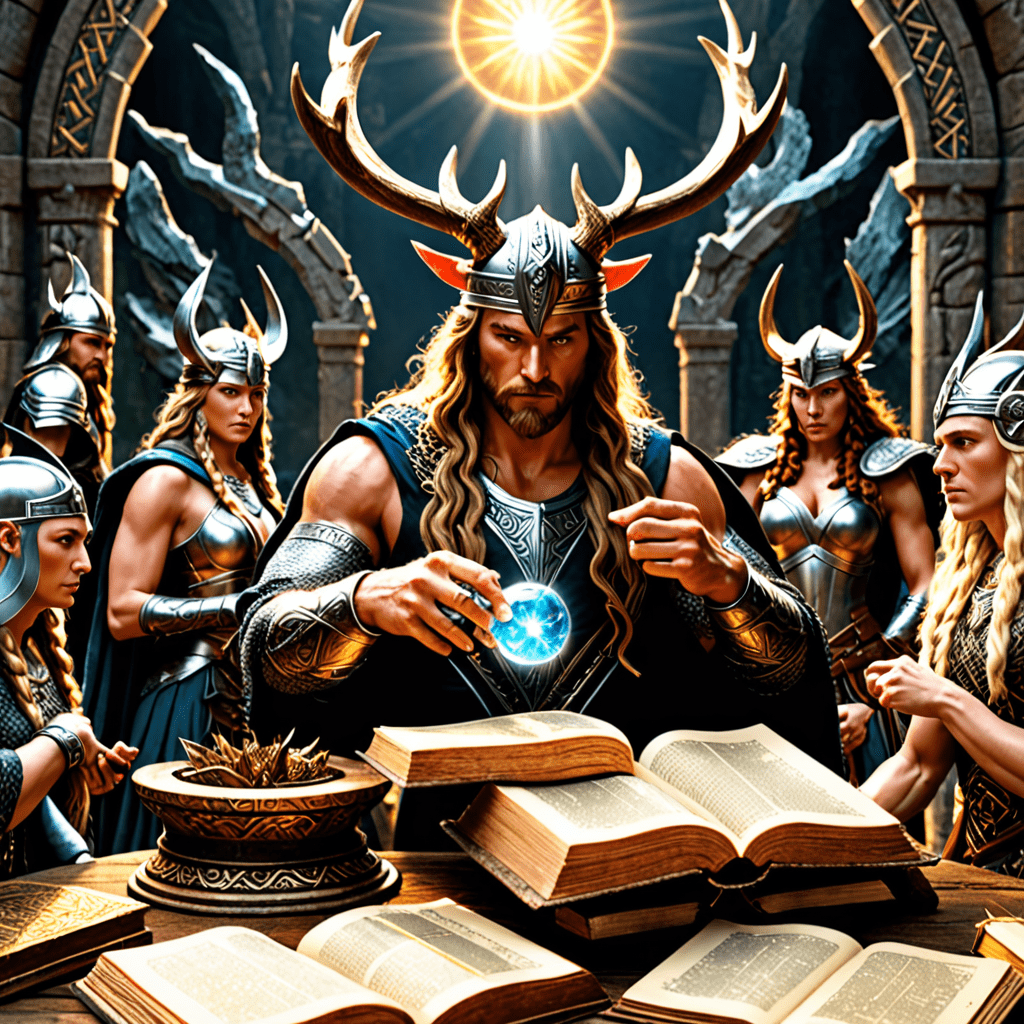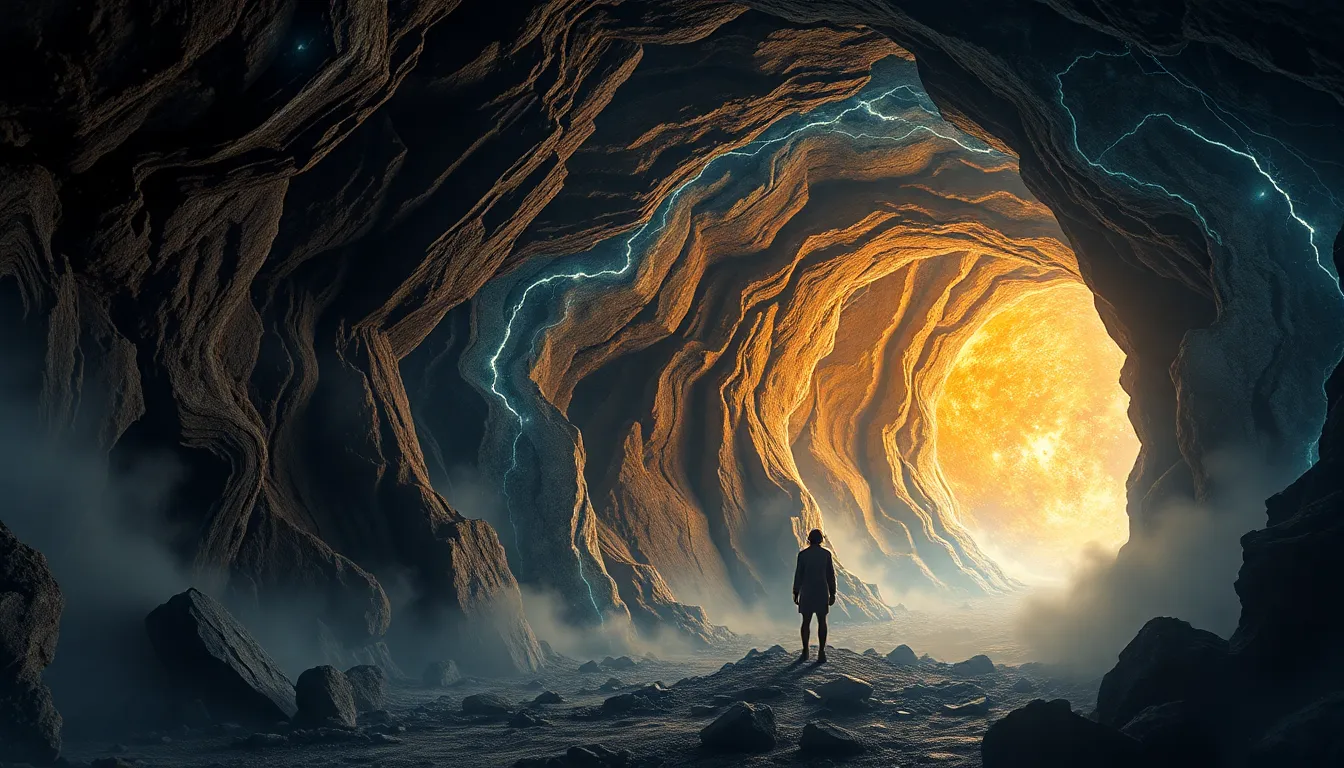I. Introduction
African mythology is a rich and diverse tapestry of myths, legends, and beliefs that have shaped the worldview of African peoples for centuries. At its core lies the concept of cosmic order, a fundamental belief in the existence of a divine plan or pattern that governs the universe and all that dwells within it. This cosmic order encompasses the creation of the world, the roles of gods and spirits, the sacredness of the land, and the responsibilities of humans.
II. The Concept of Cosmic Order in African Mythology
Cosmic order in African mythology is often depicted as a harmonious balance between opposing forces. This balance is maintained through the actions of a supreme being, lesser deities, and ancestral spirits. The supreme being, often referred to as the creator god, is responsible for the creation of the world and the establishment of its order. Lesser deities and spirits serve as intermediaries between the supreme being and humans, carrying out his will and mediating between the physical and spiritual realms.
III. The Creation Myth and the Origin of the Cosmos
The creation myth in African mythology often involves a primordial being or couple who emerge from a void or chaos. Through their actions, they bring forth the elements of the universe, including the sky, the earth, and the waters. The creation myth typically explains the origin of humans as well, who are often created from the body or breath of the creator god. The creation myth establishes the fundamental structure of the cosmos and the place of humans within it.
IV. The Role of the Supreme Being: Creator, Sustainer, and Enforcer
The supreme being in African mythology is often a remote and transcendent figure, yet his presence is felt throughout the universe. He is the creator and sustainer of all things, and his laws and commands govern the cosmic order. The supreme being may be benevolent or vengeful, and he demands respect and obedience from his creations. His role as enforcer ensures that the cosmic order is maintained and that those who violate it will be punished.
V. Lesser Deities and Spirits: Mediators between Humans and the Divine
Lesser deities and spirits play a vital role in African mythology as intermediaries between the supreme being and humans. They embody specific aspects of the natural world, such as thunder, rain, or the harvest. They can be benevolent or malevolent, and they respond to the prayers and offerings of humans. People often seek the favor of lesser deities and spirits through rituals, sacrifices, and prayers. These intermediaries provide a bridge between the human world and the divine realm, allowing humans to connect with the cosmic order.
VI. The Mythological Landscape: Sacred Places and Time
The mythological landscape in African mythology is imbued with sacred significance. Certain places, such as mountains, rivers, and forests, are believed to be the abode of gods and spirits. These places become centers of pilgrimage and ritual, where people connect with the divine and seek blessings or guidance. Time also holds a sacred dimension, with specific days and periods marked for festivals, ceremonies, and sacrifices. By observing these sacred places and times, humans participate in the cosmic order and align themselves with its rhythms.
VII. Human Interactions with the Cosmos: Rituals, Sacrifices, and Taboos
Humans interact with the cosmos through various rituals, sacrifices, and taboos. Rituals are formalized actions that help people connect with the divine and maintain the cosmic order. Sacrifices are offerings made to gods or spirits to express gratitude, seek favor, or atone for wrongdoing. Taboos, on the other hand, are prohibitions against certain actions or behaviors that are believed to disrupt the cosmic balance. These interactions allow humans to participate in the cosmic order and shape their relationship with the divine realm.
VIII. The Significance of Ancestors and the Importance of Lineage
Ancestors play a pivotal role in African mythology, serving as intermediaries between the living and the divine. They are believed to possess wisdom, guidance, and power that can influence the lives of their descendants. Lineage is of paramount importance, as it establishes one's connection to the ancestors and their spiritual legacy. Ancestors are often invoked in rituals and ceremonies, and their blessings are sought to ensure prosperity, health, and harmony within the community.
IX. The Influence of Cosmic Order on Social Hierarchy and Ethics
Cosmic order in African mythology profoundly influences social hierarchy and ethical values. The structure of the cosmos, with its divine hierarchy and established roles, is often reflected in the organization of human society. Social and political authority is often legitimized by reference to the cosmic order, and rulers are seen as representatives of the divine. Ethical principles emphasize the importance of harmony, respect, and cooperation within the community, mirroring the balance and interconnectedness of the cosmos.
X. Conclusion: The Enduring Legacy of African Mythology in Shaping Cosmology and Social Order
African mythology, with its central theme of cosmic order, has profoundly shaped the worldview and social fabric of African peoples. Through its myths, legends, and beliefs, it has provided a framework for understanding the origin and nature of the universe, the roles of gods and spirits, and the responsibilities of humans. The concept of cosmic order continues to influence contemporary African cultures, providing a foundation for social and moral values, and inspiring artistic and literary expressions. African mythology remains a rich and enduring legacy that continues to resonate with people today.
FAQ
Q1: What is the fundamental concept of African mythology?
A: The fundamental concept of African mythology is the belief in cosmic order, a divine plan that governs the universe and all its inhabitants.
Q2: Who is the supreme being in African mythology?
A: The supreme being, often referred to as the creator god, is responsible for the creation of the world and the establishment of cosmic order.
Q3: What is the role of lesser deities and spirits in African mythology?
A: Lesser deities and spirits serve as intermediaries between the supreme being and humans, carrying out his will and mediating between the physical and spiritual realms.
Q4: How do humans interact with the cosmos in African mythology?
A: Humans interact with the cosmos through rituals, sacrifices, and taboos, which allow them to connect with the divine and maintain the cosmic order.
Q5: What is the significance of ancestors in African mythology?
A: Ancestors play a pivotal role in African mythology as intermediaries between the living and the divine, their blessings and guidance are sought to ensure prosperity and harmony.



